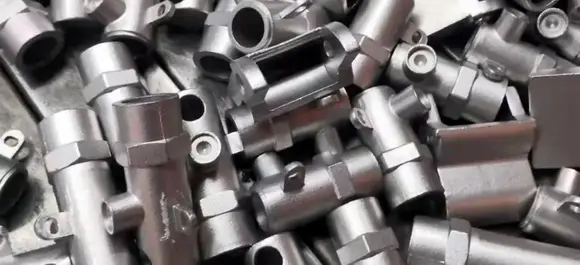Mobile:+86-311-808-126-83
Email:info@ydcastings.com
use of water pump in car
The Use of Water Pumps in Cars
Water pumps are an essential component in the automotive industry, playing a crucial role in ensuring the efficient operation of an engine. They are responsible for circulating coolant throughout the engine and the radiator system, maintaining optimal temperatures and preventing overheating. This article examines the importance, function, and application of water pumps in cars, along with the potential issues that can arise from their failure.
Understanding the Function of Water Pumps
At its core, the water pump is a mechanical device that maintains the flow of coolant in a vehicle's cooling system. The coolant absorbs heat from the engine block and cylinder head, regulating the engine temperature and preventing potential thermal damage. Once the coolant absorbs this heat, it flows through the radiator, where it is cooled before being cycled back to the engine. The water pump is driven by the engine's crankshaft, typically via a belt or chain, ensuring that it operates in synchrony with the engine.
Importance of Water Pumps
The importance of water pumps cannot be overstated. An engine operates most efficiently when it maintains a specific temperature range—typically between 190°F and 220°F (88°C and 104°C). If the engine temperature exceeds this range, it can lead to severe damage, including warped cylinder heads, blown gaskets, or even complete engine failure. A malfunctioning water pump can hinder coolant circulation, leading to overheating and increased wear on engine components.
Furthermore, a properly functioning water pump helps enhance the overall efficiency of the vehicle. When the engine runs within optimal temperature ranges, it operates more efficiently, improving fuel economy and reducing emissions. This is critical not only for vehicle performance but also for environmental sustainability.
Common Types of Water Pumps
There are primarily two types of water pumps used in automotive applications mechanical and electric
.use of water pump in car

1. Mechanical Water Pumps These are the most common type and are typically belt-driven. They utilize a rotor mechanism that draws coolant from the radiator and pushes it through the engine. Mechanical water pumps are reliable and have been the standard for decades.
2. Electric Water Pumps These are gaining popularity, especially in hybrid and electric vehicles. Electric water pumps can operate independently of the engine speed, allowing for better control over coolant flow. This results in more efficient cooling, especially during stop-and-go driving conditions, and can contribute to improved fuel economy.
Signs of Water Pump Failure
Recognizing the signs of water pump failure is crucial for the maintenance of your vehicle. Common symptoms include
- Overheating Engine If the engine temperature gauge rises significantly, it may indicate that the water pump is not circulating coolant effectively. - Coolant Leaks Puddles of coolant under the vehicle may point to a leak in the water pump seal or casing. - Unusual Noises Grinding or whining noises from the engine area can signal that the water pump bearings are failing. - Steam or Vapor Excessive steam from the radiator can indicate overheating, potentially due to a malfunctioning water pump.
Preventive Maintenance
Preventing water pump failure is vital for maintaining vehicle health. Regular inspection of the cooling system, including checking for leaks and ensuring the correct level and condition of the coolant, can help extend the life of the water pump. It's also important to follow the manufacturer's recommendations for maintenance intervals and replacement schedules.
In conclusion, the water pump is a small but mighty component of the automotive cooling system that plays a critical role in ensuring the engine runs smoothly and efficiently. Regular maintenance and timely assessment of the water pump's condition can prevent costly repairs and ensure a reliable driving experience. Whether mechanical or electric, the work of a water pump is fundamental to keeping vehicles operational and safe on the road.
-
Why Is Choosing the Right Motor Housing Critical for Engine Performance?NewsJul.18,2025
-
Which Impeller Types Best Optimize Your Pump’s Efficiency?NewsJul.18,2025
-
Optimize Maintenance Efficiency with Durable Oil Catch SolutionsNewsJul.18,2025
-
Maximize Pump Performance with Precision-Engineered ComponentsNewsJul.18,2025
-
Elevate Industrial Flow Systems with Precision-Engineered ComponentsNewsJul.18,2025
-
Boost Durability and Functionality with Precision Power CastingsNewsJul.18,2025











